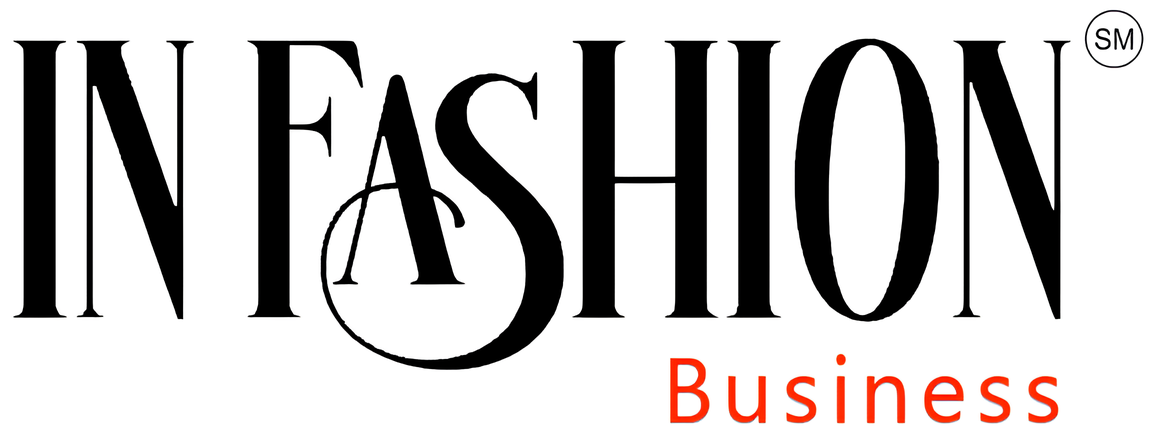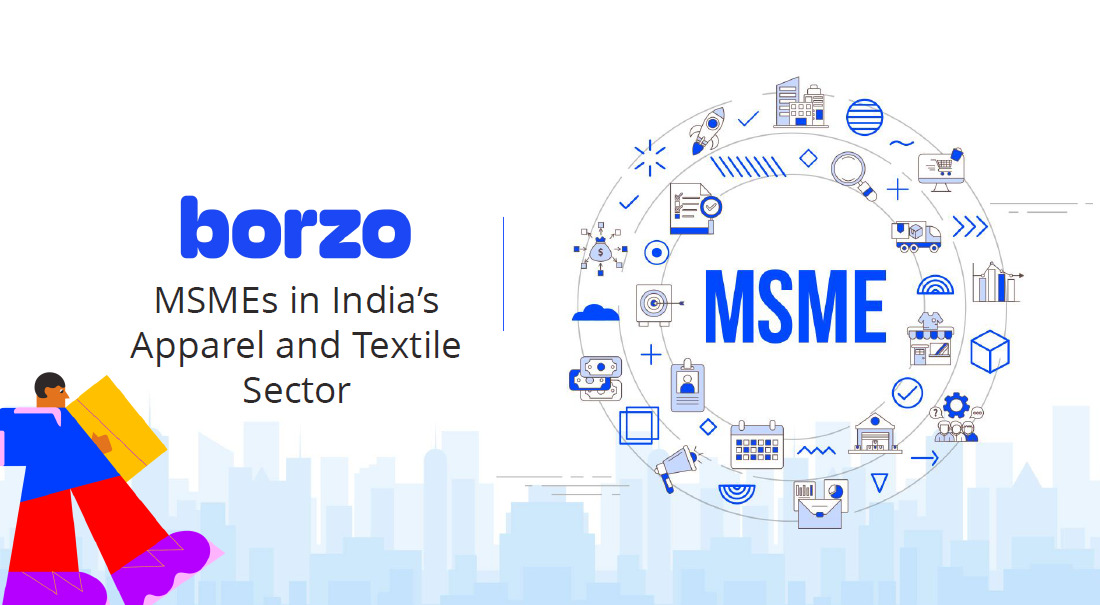MSMEs APPAREL TEXTILE INDIAN ECONOMY EMPLOYMENT EXPORTS INDUSTRIAL GROWTH CAGR E-COMMERCE SUSTAINABILITY LOGISTICS DELIVERY BORZO SURVEY BUSINESS CHALLENGES FAST FASHION SKILLED LABOR CUSTOMER ACQUISITION INVENTORY MANAGEMENT ORDER VALU NATIONAL
MUMBAI, MAHARASHTRA, INDIA
By IFAB MEDIA - NEWS BUREAU - January 31, 2025 | 374 8 minutes read
The MSMEs in Apparel and Textile sector is an integral part of the Indian economy, contributing significantly to employment, exports, and industrial growth. As one of the country's largest and most diverse industries, it encompasses everything from raw material production to ready-made garment manufacturing. According to the India Brand Equity Foundation, the industry is expected to grow at a 10% CAGR, reaching US$ 350 billion by 2030, with exports projected at US$ 100 billion. Currently, the sector is evolving rapidly due to the booming e-commerce market, shifting consumer preferences, and a growing focus on sustainability. However, rising competition and the fast-fashion trend are driving businesses to optimize their operations and logistics to stay ahead.
As businesses work to maintain profitability, logistics and delivery have become essential to ensuring smooth operations. In light of these trends, Borzo (formerly WeFast), a global same-day delivery company conducted a survey to explore the challenges faced by Apparel and Textile MSMEs. The survey was conducted across 15+ cities, including Mumbai, Delhi, Pune, Hyderabad, Bangalore, Jaipur, Ahmedabad, Kolkata, Gurgaon, Noida, Lucknow, Indore, Chandigarh, Surat, Ghaziabad, Faridabad, Thane, and Nashik.
The survey reveals how companies are adapting to modern demands by tackling diverse consumer preferences, addressing logistics pain points, embracing sustainability, and managing the costs associated with daily operations, all while striving for growth and efficiency in an increasingly dynamic market. The key findings of the survey include:
Categories of Products Sold: According to the survey, apparel accounting for 78.5% is sold predominantly, whereas fabrics make up 31%, and home textiles contribute 7%. Industrial Textiles and Raw Materials made up smaller portions of sales, contributing 1% and 3.5%, respectively, focusing on a strong focus on finished products in the form of apparel.
Business Challenges: In the apparel and textile sector, 40.5% of businesses face challenges with logistics and deliveries, followed by 32.5% struggling to meet fast fashion demands. Skilled labor issues impact 30.5% of businesses, while 23% grapple with rising operational costs. Customer acquisition is a challenge for 21.5%, and 20.5% face difficulties in managing inventory effectively.
Average Order Value: The majority of respondents (38%) reported their average order value ranging between ₹1,000 and ₹5,000, highlighting this as the most common price bracket for transactions. A significant portion, 23.5%, stated that their orders are typically below ₹1,000, indicating a substantial presence of smaller-value transactions. About 22% of businesses have average order values ranging from ₹5,000 to ₹10,000. Orders with higher values are less common, with 7.5% falling between ₹10,000 and ₹25,000 and only 6.5% exceeding ₹25,000.
Monthly Order Volume: The survey also reflects that 51.5% of businesses process fewer than 50 orders per month. However, 32.5% of businesses handle between 50-200 orders monthly, while the rest, only 6%, process between 200-500 orders. Only a few, over 4.5% of businesses process over 500-1000 orders, and only 4% process over 1000 orders.
B2C vs B2B Business Model: The survey reveals that in the sector, approximately 70.5% of responding MSMEs primarily operate on B2C models, while 19.5% maintain a balanced mix of B2C and B2B sales, highlighting a strong orientation towards B2C business model. Only 10% focus primarily on B2B trade.
Impact of Festive Season: The festive season is a significant growth period for the sector, with the survey revealing that 36% of businesses reported a 20%-30% increase in orders compared to the previous year, and 35.5% saw a 10%-20% rise. Notably, nearly 24% experienced an order increase of over 50%, while only 3.5% reported a 10%-20% decline during the festive season.
Monthly Shipments via Same-Day Logistics: According to the survey, 71.5% of MSMEs in the sector have a monthly shipment value between ₹50,000 and ₹2,00,000 through same-day logistics. Another 7.5% ship goods worth ₹2,00,000 to ₹5,00,000, and 3.5% ship products valued between ₹5,00,000 and ₹10,00,000. Only 2% of businesses handle shipments worth ₹10,00,000 to ₹50,00,000. Meanwhile, approximately 14% of businesses ship products worth less than ₹40,000 per month.
Logistics Pain Point: According to the survey, 63.5% of MSMEs identify high delivery costs as the primary challenge in their logistics operations. Delivery delays come second, with 49% of businesses reporting this issue. Additionally, 20% face limited delivery options, while 20.5% struggle with over-reliance on third-party courier providers.
Importance of Same-Day Delivery: Same-day delivery is vital for the majority of businesses, with 81% considering it extremely important for their logistics operations. Meanwhile, 12% view same-day delivery as important but not the only delivery option. Only 3% of businesses regard same-day delivery as less significant in their operations.
Preferred Delivery Timelines: As consumer preferences shift towards quick deliveries at convenient time slots, businesses are adapting to these demands for both incoming and outgoing shipments. According to the survey, 58% of businesses prefer a same-day delivery window of 30 to 60 minutes, while 6% are comfortable with a 1–2-hour window. Only 12% are flexible with delivery at any time during the same day, reflecting the growing demand for faster delivery services. Meanwhile, just 14% of businesses feel the need for a 10-minute delivery window.
Website Sales: Despite the growing popularity of the D2C model, only 28.5% of businesses sell their products through their own website. Among those, the majority (57.8%) reported challenges in managing multiple deliveries during sales promotion events. Meanwhile, 71.5% of MSMEs rely on external channels for their sales instead of their own website.
Support for Logistics: MSMEs are seeking support to improve their logistics in order to better meet customer demands and provide enhanced service. According to the survey, 56% of businesses seek more reliable same-day delivery services to enhance their logistics and delivery operations, 29% aim to reduce logistics costs, and 15% highlight the need for improved technology to track and manage deliveries.
Use of Sustainable Packaging: Marking a significant shift towards sustainable packaging, 70% of businesses in the sector are using sustainable packaging materials, while 30% have not.
Cost of Sustainable Fashion: Sustainable fashion products are typically more expensive for several reasons. According to 47% of MSMEs, high raw material costs are a major factor, while 19% attribute the high costs to processing expenses. Only 6.5% believe the cost increase is due to the limited production of sustainable products, 5% mention limited sourcing options, and 20.5% think that a combination of these factors contributes to the higher cost.
Future of Sustainable Fashion: Looking ahead, 59.5% of respondents expect the cost of manufacturing sustainable fashion products to decrease, while 40.5% do not foresee this happening soon.
Alina Kisina, CEO, Borzo said, “The perspective of MSMEs in the apparel and textile industry highlights the substantial efforts companies are making to keep pace with the ever-evolving demands of consumers. Since Indian MSMEs in this sector tend to be smaller and more fragmented compared to those in other countries, price alone isn't the primary driver of competitiveness. Instead, factors such as improving logistics efficiency, cost management, and a focus on sustainability are critical to staying ahead. The findings reflect the pressing need for more streamlined processes, pointing to challenges like high delivery costs and the growing pressure of fast-fashion demands as key drivers of change in the industry. It is essential for businesses in the sector to adapt quickly to these evolving needs to ensure long-term success and competitiveness.”
In India, Borzo has a fleet of over 50,000 delivery partners who serve the Enterprise hyperlocal and SME segment.











